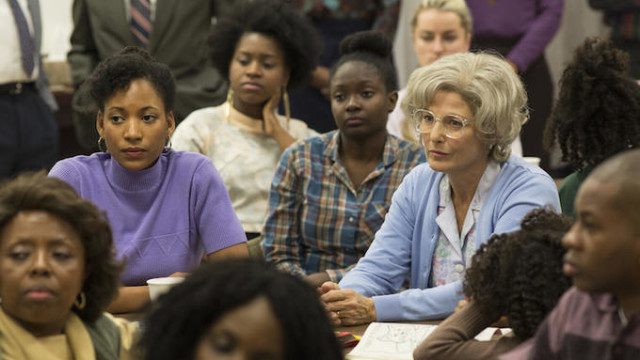(Author’s note: I had actually written a review of “Part Five” – a damn good one, false modesty aside – and Margaux pointed out to me that it was cut off mid-sentence. I went to rectify this, only to see that “mid-sentence” actually meant “300 words before the end of the review.” I’ve been having computer problems lately – no surprise there – and for whatever reason WordPress decided not to save my draft. So I deleted the review. My apologies if you clicked on it and thought I really phoned it in. I assure you that wasn’t the case. For what it’s worth, I gave “Part Five” 4.5 stars.)
“Part Six” did what all great conclusions should do: it wrapped things up, without ever feeling like it was pandering to the audience. (Pandering isn’t really what Show Me a Hero does.) Moreover, it felt like the natural culmination of every installment that came before it. This was a brilliant, heartbreaking episode of television, and it perfectly encapsulated everything that this show is about.
This final installment really tapped into the tragedy at the show’s core – and that is the tragedy of Nick Wasicsko. It’s a shame to see Oscar Isaac’s tough, vulnerable, funny, and altogether devastating performance come to a close. He carried the show on his shoulders with aplomb. I can’t think of any other actor who could have done a better job. “Part Six” chews Nick up and spits him out. It’s an absolute gut-punch of an episode.
It’s remarkable, too, because in many ways “Part Six” is Show Me a Hero‘s least political episode, and much of it revolved around Nick slowly being poisoned by the political system. He decides to undermine Zalenski, first by hiring back Nay’s boss, then goading him in a meeting (note Isaac’s wonderfully smart-ass delivery of “What’d you win with, a kick-ass thirty-six percent?”). Of course, there’s always collateral damage. Nay loses her job, and Zalenski gerrymanders Nick’s district so there’s no way he can win reelection. Nick burns the last bridge he has, Vinni Restiano, but running against her for city council president (Vinni, for her part, retaliates by calling Nay and hinting at some infidelity in Albany, which clearly didn’t happen). Nick loses the election. He loses his friends. He’s lost everything, and all he ever tried to do was make his city better. “Show me a hero and I’ll write you a tragedy,” Fitzgerald said, and no wonder Lisa Lemkin took that quote for the title of her book about Nick and Yonkers. Nick’s story ends the only way it could: suicide.
I teared up more than once in “Part Six,” but in the end what impressed me most about Show Me a Hero was not its anger, but its heart. This show really cared about all of its characters, which is doubly impressive because these were real people. I felt for Doreen when no one showed up to the neighborhood party. I was blown away by the subtle but irrevocable transformation of Mary Dorman (Bob Mahock gets the episode’s best line: “Mrs. Dorman, you’re a good neighbor”).
But there was still anger at the show’s heart. Not at the Hank Spallones or the Jack O’Tooles of the world – but certainly at them, yes, fuck those guys – but at inertia, at entropy, at torpor. Show Me a Hero never wanted to be a call to arms (the epilogue bitterly reminds us that the housing case wasn’t settled until 2007). It didn’t want to show us success. It wanted to show us failure. It was never less than brilliant, essential television.
“Part Six” score: 5/5 stars
Show Me a Hero series score: 5/5 stars

